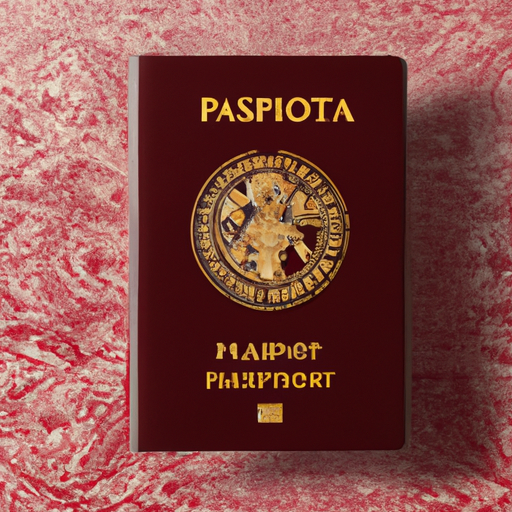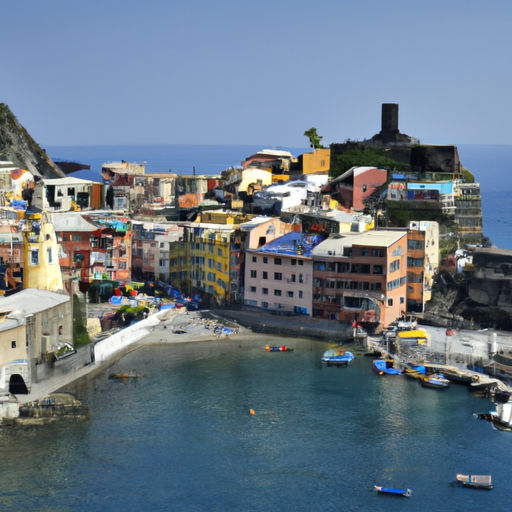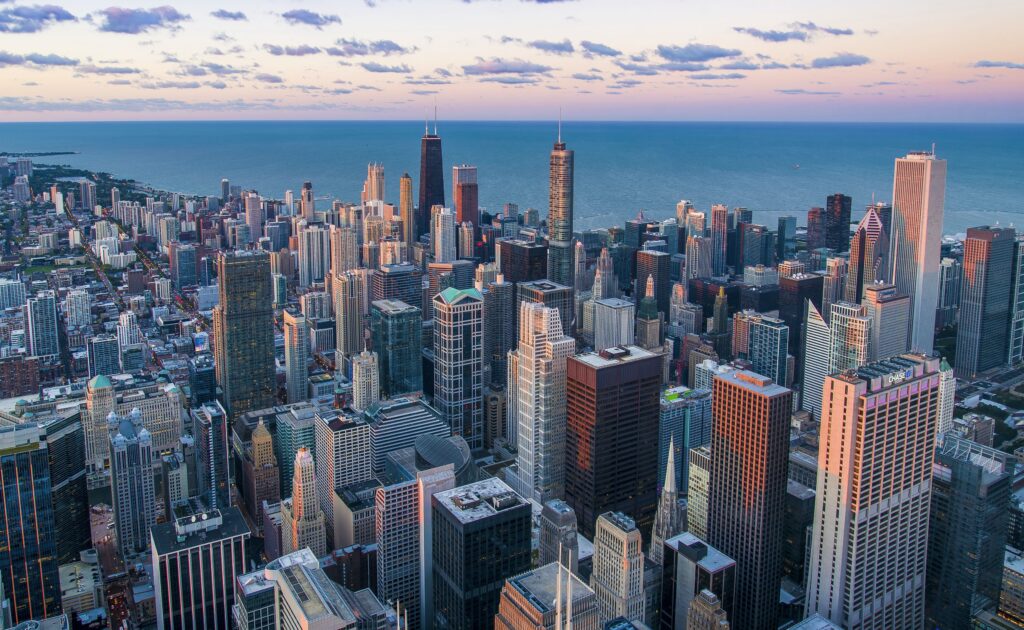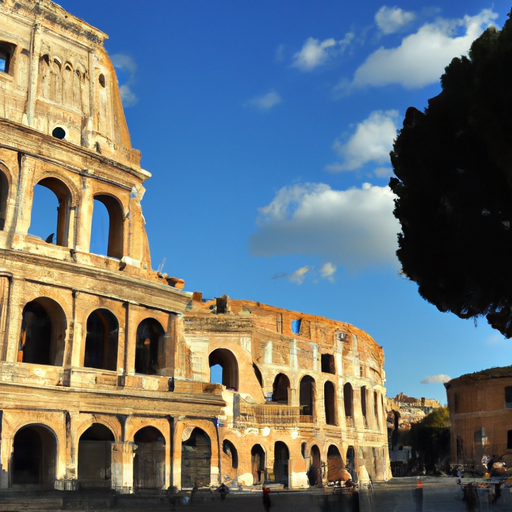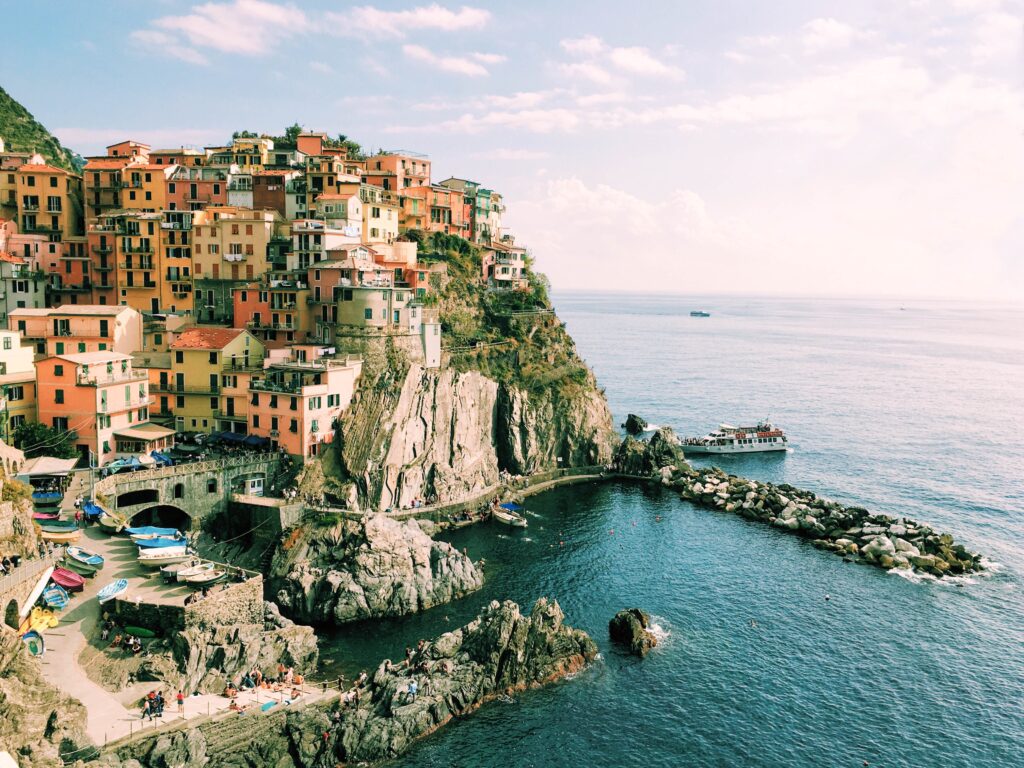If you’re planning a trip to Italy, you might be wondering if you need a visa to enter the country. In this article, we will explore the requirements for traveling to Italy and whether or not you will need a visa. We will cover the various types of visas available and provide you with the information you need to ensure a smooth and hassle-free journey. So, let’s get started and find out if a visa is necessary for your Italian adventure! If you are planning a trip to Italy, one of the important things to consider is whether you need a visa to enter the country. Italy is a popular tourist destination known for its rich history, beautiful landscapes, and delicious cuisine. In order to ensure a smooth and hassle-free travel experience, it is essential to understand the visa requirements for visiting Italy. This article will provide an overview of the types of visas available for traveling to Italy and the procedures for obtaining them.

Types of Visas for Italy
Italy offers two main types of visas for travelers: Schengen Visa and National Visa. Depending on the purpose and duration of your visit, you may need to apply for either one of these visas.
Schengen Visa
The Schengen Visa is a short-term visa that allows travelers to visit multiple countries within the Schengen Area, which includes 26 European countries. This visa is valid for a maximum duration of 90 days within a 180-day period. It is suitable for tourists and business travelers who plan to stay in Italy or the Schengen Area for a limited period of time.
National Visa
The National Visa, also known as a long-stay visa, is for individuals who intend to stay in Italy for more than 90 days. This visa is suitable for individuals who wish to study, work, or join family members residing in Italy. The National Visa allows for a longer duration of stay and may also grant additional rights and privileges to the visa holder.
Schengen Visa
What is a Schengen Visa?
A Schengen Visa is a travel document that allows you to enter and travel within the Schengen Area. This includes countries such as Italy, Germany, France, Spain, and many more. This visa allows you to stay in Italy for a maximum of 90 days within a 180-day period.
Who Needs a Schengen Visa?
If you are a citizen of a country that is not a member of the European Union, you will generally need a Schengen Visa to enter Italy. However, there are some exceptions for citizens of certain countries who are exempt from the Schengen Visa requirement. These exemptions are typically based on diplomatic relations, visa reciprocity agreements, or the inclusion of the country in the European Union’s visa waiver program.
How to Apply for a Schengen Visa?
To apply for a Schengen Visa, you will need to contact the Italian embassy or consulate in your home country. The application process may vary slightly depending on the embassy or consulate, but generally, you will need to follow these steps:
-
Fill out the visa application form: You will need to complete the Schengen Visa application form with accurate and up-to-date information.
-
Gather the required documents: You will need to provide certain documents to support your visa application. These may include your passport, proof of travel insurance, flight itinerary, hotel reservation, proof of financial means, and any other documents deemed necessary by the embassy or consulate.
-
Schedule an appointment: Once you have completed the application form and gathered the required documents, you will need to schedule an appointment at the Italian embassy or consulate. This can usually be done online or by phone.
-
Attend the visa interview: At the scheduled appointment, you will be required to attend a visa interview. During the interview, you may be asked questions about the purpose of your visit, your travel plans, and your ties to your home country.
-
Pay the visa fee: A non-refundable visa fee is required to process your application. The fee may vary depending on the type of visa and your nationality. Make sure to check the current fee at the time of application.
-
Wait for visa approval: After submitting your application and attending the interview, you will need to wait for the visa to be processed. The processing time may vary, so it is advisable to apply well in advance of your planned travel dates.
Requirements for Schengen Visa
The requirements for a Schengen Visa may vary depending on the embassy or consulate you apply to, but generally, the following documents are required:
-
Valid passport: Your passport must be valid for at least three months beyond your intended departure date from the Schengen Area. It should also have at least two blank pages for visa stamps.
-
Schengen Visa application form: You will need to complete the application form accurately and honestly, providing all the necessary information.
-
Recent passport-sized photographs: You will need to provide two recent, color, passport-sized photographs that meet the specifications set by the embassy or consulate.
-
Proof of travel insurance: You will need to provide proof of travel insurance that covers medical expenses, emergency medical evacuation, and repatriation of remains. The insurance should be valid for the entire duration of your stay in the Schengen Area.
-
Flight itinerary: You will need to provide proof of your flight booking for your trip to Italy. This can be a confirmed round-trip or onward ticket.
-
Hotel reservation: You will need to provide proof of your accommodation in Italy. This can be a hotel reservation, rental agreement, or invitation letter from friends or family.
-
Proof of financial means: You will need to demonstrate that you have sufficient funds to support yourself during your stay in Italy. This can be in the form of bank statements, traveler’s checks, or credit card statements.
-
Purpose of visit: You will need to provide documents that explain the purpose of your visit, such as an invitation letter from a business partner or a letter of admission from an educational institution.
It is important to note that these requirements are subject to change, so it is advisable to check with the Italian embassy or consulate in your home country for the most up-to-date information.

National Visa
What is a National Visa?
A National Visa is a long-stay visa that allows individuals to stay in Italy for a period exceeding 90 days. It is generally granted for purposes such as work, study, or family reunification.
Who Needs a National Visa?
If you plan to stay in Italy for more than 90 days or have a specific purpose such as work or study, you will generally need a National Visa. Citizens of the European Union, European Economic Area, and Switzerland, as well as their family members, do not require a National Visa to stay in Italy.
How to Apply for a National Visa?
To apply for a National Visa, you will need to follow a similar process to the Schengen Visa application. However, the National Visa application is usually made directly at the Italian embassy or consulate in your home country.
The exact requirements and procedures for applying for a National Visa may vary depending on the purpose of your visit. For example, if you are applying for a work visa, you may need to provide additional documents such as an employment contract or proof of qualifications. It is important to check with the Italian embassy or consulate for the specific requirements for your situation.
Types of National Visas
Italy offers various types of National Visas, depending on the purpose of your stay. Some common types of National Visas include:
-
Study Visa: This visa is for individuals who wish to pursue studies or research in Italy. It is typically granted to students enrolled in Italian universities or research institutions.
-
Work Visa: This visa is for individuals who have been offered employment in Italy. It is generally granted for a specific job or profession and may require a work permit.
-
Family Reunion Visa: This visa is for individuals who wish to join their family members who are already residing in Italy. It may be granted to spouses, children, parents, or other close relatives.
-
Entrepreneur Visa: This visa is for individuals who wish to start a business or invest in Italy. It requires a detailed business plan and sufficient financial resources.
It is important to note that each type of National Visa has its own specific requirements and conditions. It is advisable to consult the Italian embassy or consulate for detailed information on the requirements for each visa category.
Visa Exemptions for Italy
While most travelers to Italy will require a visa, there are certain exemptions based on diplomatic relations, visa reciprocity agreements, or participation in the European Union’s visa waiver program. These exemptions allow citizens of certain countries to enter Italy and stay for a limited duration without a visa.
Visa Waiver Program Countries
Italy, as a member of the European Union, participates in the European Union’s visa waiver program. This program allows citizens of certain countries to enter Italy and the Schengen Area without a visa for short stays. The specific countries included in the visa waiver program may change from time to time, so it is advisable to check the current list of countries with visa exemptions.
Visa-Free Travel with Residence Permits
In some cases, individuals who hold a valid residence permit from another European Union country may be allowed to enter Italy without a visa. This applies to individuals who hold residence permits for purposes such as work, study, or family reunification. The duration of stay without a visa will generally be determined by the validity of the residence permit.

Visa Waiver Program Countries
List of Visa Waiver Program Countries
The list of countries included in the European Union’s visa waiver program may vary, but typically includes countries such as the United States, Canada, Australia, New Zealand, Japan, South Korea, and many European countries. Citizens of these countries can enter Italy and the Schengen Area for short stays without the need for a visa.
Duration of Stay in Italy
Visa waiver program countries typically allow their citizens to stay in Italy and the Schengen Area for a maximum of 90 days within a 180-day period. It is important to note that these days do not need to be consecutive and can be spread out over multiple trips within the 180-day period.
Visa-Free Travel with Residence Permits
Requirements for Visa-Free Travel with Residence Permits
If you hold a valid residence permit from another European Union country, you may be allowed to enter Italy without a visa. However, there are certain requirements that need to be met:
-
Valid residence permit: You must hold a valid residence permit from another European Union country.
-
Purpose of visit: Your purpose of visit to Italy should align with the purpose of your residence permit. For example, if you hold a residence permit for work, your visit to Italy should be for work-related purposes.
-
Duration of stay: The duration of your visa-free stay in Italy will generally be determined by the validity of your residence permit. It is important to check the specific conditions and limitations set by the Italian authorities.
Duration of Stay in Italy
The duration of stay in Italy without a visa will generally be determined by the validity of your residence permit. It is important to note that the visa-free stay may be limited to a certain number of days per visit or may have an overall limit on the total duration of stay within a specific period. It is advisable to check the specific conditions and limitations set by the Italian authorities.
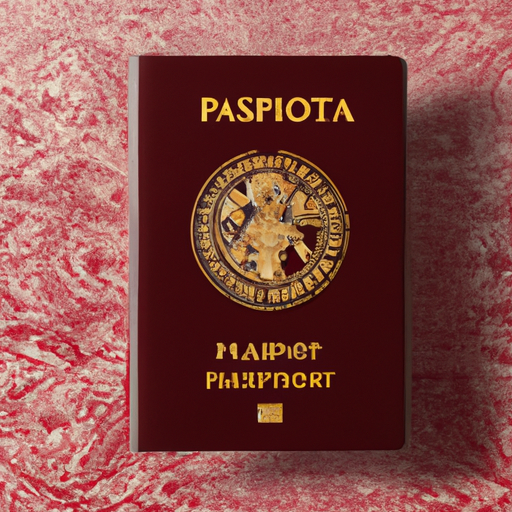
Visa Application Process
Step-by-Step Guide to Apply for a Visa
Applying for a visa to Italy can seem daunting, but with proper preparation and attention to detail, the process can be relatively straightforward. Here is a step-by-step guide to help you through the visa application process:
-
Determine the type of visa you need: Start by understanding your purpose of travel and the appropriate visa category for it. Determine whether you need a Schengen Visa or a National Visa.
-
Research the requirements: Visit the website of the Italian embassy or consulate in your home country to gather information about the specific requirements for your visa application. Make sure to note any additional documents or specific procedures that may apply.
-
Complete the application form: Fill out the visa application form accurately and honestly, providing all the necessary information. Make sure to review your answers before submitting the form.
-
Gather the required documents: Collect all the required supporting documents for your visa application. This may include your passport, proof of travel insurance, flight itinerary, hotel reservation, and proof of financial means, among others.
-
Schedule an appointment: Contact the Italian embassy or consulate to schedule an appointment for your visa application. This can usually be done online or by phone. Make sure to schedule the appointment well in advance, as wait times may vary.
-
Attend the visa interview: Arrive at the embassy or consulate on the scheduled date and time for your visa interview. Be prepared to answer questions about the purpose of your visit, your travel plans, and any other relevant details.
-
Pay the visa fee: Pay the required visa fee at the embassy or consulate. The fee may vary depending on the type of visa and your nationality. Make sure to obtain a receipt for the payment.
-
Submit your application: Submit your completed visa application form, supporting documents, and payment receipt at the embassy or consulate. Make sure to keep copies of all the documents for your records.
-
Track your application: After submitting your application, you may be provided with a tracking number or reference number that allows you to track the progress of your visa application. Use this to stay informed about the status of your application.
-
Collect your visa: Once your visa application is processed and approved, you will be notified by the embassy or consulate. You can then collect your visa from the embassy or consulate or arrange for its delivery, depending on the specific procedures in place.
Documents Required for Visa Application
The specific documents required for your visa application may vary depending on the type of visa you are applying for and your individual circumstances. However, the following documents are commonly required:
-
Passport: Your passport must be valid for at least three months beyond your intended departure date from Italy. It should also have at least two blank pages for visa stamps.
-
Visa application form: Complete the visa application form accurately and honestly, providing all the necessary information.
-
Passport-sized photographs: Provide recent, color, passport-sized photographs that meet the specifications set by the embassy or consulate.
-
Proof of travel insurance: Provide proof of travel insurance that meets the requirements set by the embassy or consulate. The insurance should cover medical expenses, emergency medical evacuation, and repatriation of remains.
-
Flight itinerary: Provide proof of your flight booking for your trip to Italy. This can be a confirmed round-trip or onward ticket.
-
Hotel reservation: Provide proof of your accommodation in Italy. This can be a hotel reservation, rental agreement, or invitation letter from friends or family.
-
Proof of financial means: Provide evidence of your financial means to support yourself during your stay in Italy. This can be in the form of bank statements, traveler’s checks, or credit card statements.
-
Purpose of visit: Provide documents that explain the purpose of your visit, such as an invitation letter from a business partner or an acceptance letter from an educational institution.
It is important to note that these are general requirements and may vary depending on the embassy or consulate you apply to. It is advisable to check the specific requirements for your visa application with the Italian embassy or consulate in your home country.
Visa Fees and Processing Time
Visa fees for Italy vary depending on the type of visa and your nationality. The fee may be subject to change, so it is important to check the current fee at the time of application. The visa fee is generally non-refundable, even if your application is not approved.
The processing time for a visa application also varies and depends on various factors, such as the volume of applications received, the completeness of your application, and the embassy or consulate’s workload. It is advisable to apply well in advance of your planned travel dates to allow for sufficient processing time.
Visa Extension and Renewal
How to Extend or Renew Your Visa
If you are already in Italy and wish to extend or renew your visa, you will need to follow the appropriate procedures. The process for extending or renewing your visa may vary depending on the type of visa you hold and the reason for the extension or renewal.
To extend or renew your visa, you will generally need to visit the local police headquarters or post office (Questura or Poste Italiane) in Italy. You will be required to submit an application and provide supporting documents to justify the extension or renewal, such as proof of continued study, employment, or family ties.
It is important to note that visa extensions or renewals are usually granted on a case-by-case basis and are subject to approval by the Italian authorities. It is advisable to start the application process well in advance of your visa’s expiration date to avoid any issues or potential overstays.
Conditions for Visa Extension or Renewal
The conditions for visa extension or renewal in Italy may vary depending on the type of visa you hold and the reason for the extension or renewal. Some common conditions include:
-
Valid reason: You must have a valid reason to extend or renew your visa, such as continuing studies, employment, family reunification, or other legally recognized purposes.
-
Application submission: You must submit your application for extension or renewal before your current visa expires. It is advisable to start the process well in advance to allow for sufficient processing time.
-
Supporting documents: You will need to provide supporting documents that justify the extension or renewal, such as proof of continued studies, employment, or family ties. These documents may vary depending on the visa category.
-
Financial requirements: You may need to demonstrate that you have sufficient financial means to support yourself during the extended or renewed period.
-
Good standing: You must be in good standing with the Italian authorities and comply with all relevant laws and regulations.
It is important to note that visa extensions or renewals are not guaranteed and are subject to approval by the Italian authorities. It is advisable to consult the local police headquarters or immigration authorities in Italy for specific information and guidance regarding your visa extension or renewal.
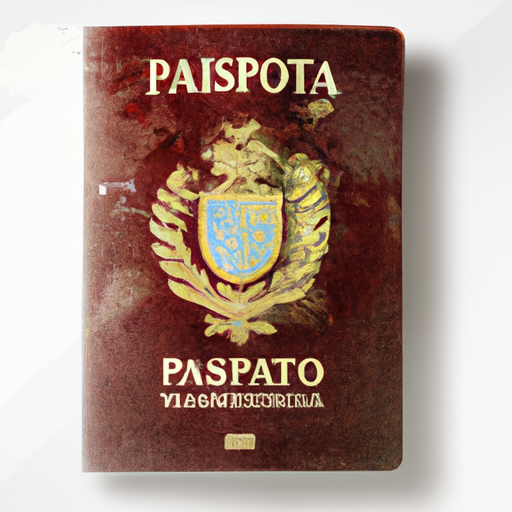
Traveling to Italy Without a Visa
Short-Term Visa-Free Travel
If you are a citizen of a country that is included in the European Union’s visa waiver program, you may be able to travel to Italy without a visa for short stays. The specific conditions and limitations will depend on your nationality. Generally, citizens of visa waiver program countries can enter Italy and the Schengen Area for a maximum of 90 days within a 180-day period.
During your visa-free stay, you will be allowed to engage in tourism, business meetings, attending conferences, or other similar activities. However, you will not be permitted to work or engage in any activities that require a work or study visa.
It is important to note that the visa waiver program does not exempt you from other entry requirements, such as having a valid passport, sufficient financial means, and proof of travel insurance. Make sure to check the specific requirements for your nationality before traveling to Italy.
Long-Term Visa-Free Travel
Individuals who hold a valid residence permit from another European Union country may be allowed to enter Italy without a visa. The specific conditions and limitations will depend on the purpose and duration of your residence permit. Generally, you will be allowed to stay in Italy for the same duration as the validity of your residence permit.
During your visa-free stay, you will be allowed to engage in activities that are aligned with the purpose of your residence permit, such as work, study, or family reunification. However, it is important to note that this visa-free stay may be limited to a certain number of days per visit or may have an overall limit on the total duration of stay within a specific period. It is advisable to check the specific conditions and limitations set by the Italian authorities.
Conclusion
In conclusion, whether you need a visa to travel to Italy depends on various factors, such as your nationality, purpose of visit, and duration of stay. Italy offers two main types of visas: the Schengen Visa, which is suitable for short-term stays of up to 90 days, and the National Visa, which is for longer stays exceeding 90 days.
If you are planning a short-term visit to Italy, you may need to apply for a Schengen Visa. The application process involves filling out the application form, gathering the required documents, attending a visa interview, and paying the visa fee. The requirements may vary depending on your nationality and the embassy or consulate you apply to.
For longer stays or specific purposes such as work or study, you will generally need a National Visa. The application process for a National Visa is similar to the Schengen Visa but may have additional requirements depending on the purpose of your stay.
It is important to be aware of the visa exemptions for Italy, such as the visa waiver program for certain countries and visa-free travel with residence permits from other European Union countries. These exemptions allow citizens of certain countries or residence permit holders to enter Italy without a visa or for an extended period.
Before traveling to Italy, it is essential to check the visa requirements and procedures that apply to your specific situation. Contact the Italian embassy or consulate in your home country for the most up-to-date and accurate information.
In conclusion, understanding the visa requirements for traveling to Italy is crucial to ensure a smooth and enjoyable travel experience. By following the necessary procedures and providing the required documents, you can obtain the appropriate visa and explore all the wonders that Italy has to offer. Plan ahead, gather all the necessary information, and make your travel dreams to Italy come true!

